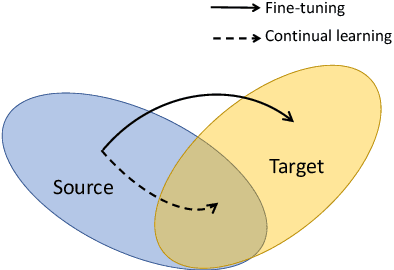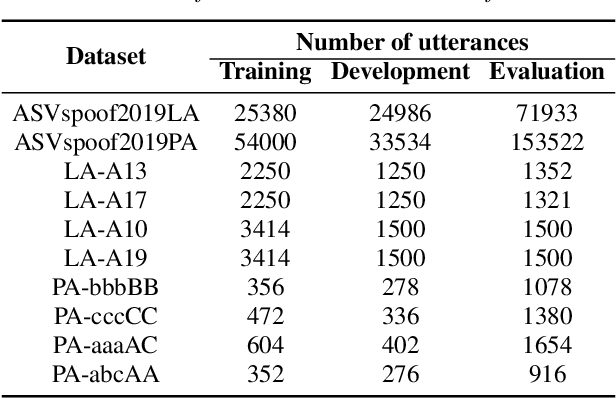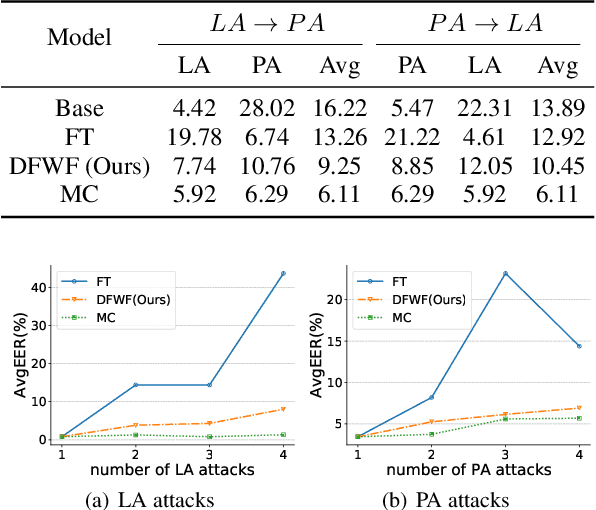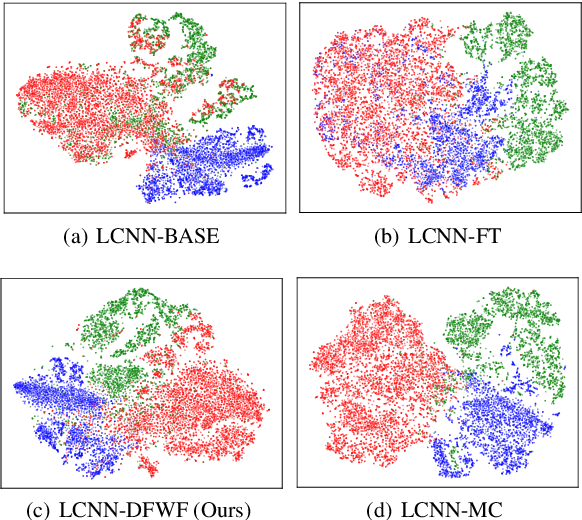Continual Learning for Fake Audio Detection
Paper and Code
Apr 15, 2021



Fake audio attack becomes a major threat to the speaker verification system. Although current detection approaches have achieved promising results on dataset-specific scenarios, they encounter difficulties on unseen spoofing data. Fine-tuning and retraining from scratch have been applied to incorporate new data. However, fine-tuning leads to performance degradation on previous data. Retraining takes a lot of time and computation resources. Besides, previous data are unavailable due to privacy in some situations. To solve the above problems, this paper proposes detecting fake without forgetting, a continual-learning-based method, to make the model learn new spoofing attacks incrementally. A knowledge distillation loss is introduced to loss function to preserve the memory of original model. Supposing the distribution of genuine voice is consistent among different scenarios, an extra embedding similarity loss is used as another constraint to further do a positive sample alignment. Experiments are conducted on the ASVspoof2019 dataset. The results show that our proposed method outperforms fine-tuning by the relative reduction of average equal error rate up to 81.62%.
 Add to Chrome
Add to Chrome Add to Firefox
Add to Firefox Add to Edge
Add to Edge